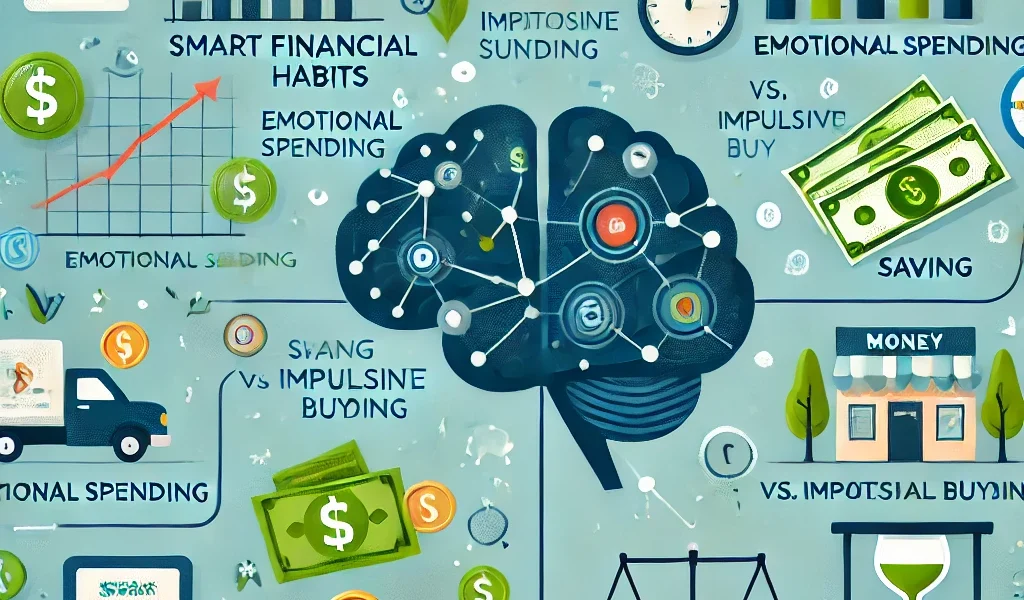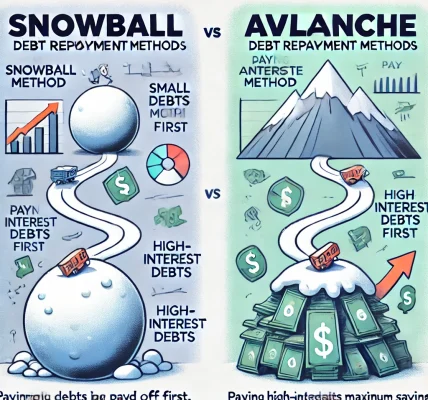Introduction
Money is more than just numbers and transactions; it is deeply connected to our emotions, beliefs, and psychological patterns. Many people struggle with financial decisions not because they lack knowledge but because their mindset influences their financial behaviors. Understanding the psychology of money can help you develop better financial habits and achieve long-term stability.
In this article, we will explore how your mindset affects your finances and provide strategies to reshape your financial outlook for success.
1. The Money Mindset: What Is It?
Your money mindset is the set of beliefs and attitudes you have about money. These beliefs shape your financial behaviors, including spending, saving, and investing habits.
Types of Money Mindsets:
- Scarcity Mindset: Believing that money is limited, leading to fear-based financial decisions.
- Abundance Mindset: Viewing money as a tool for growth and believing in financial opportunities.
- Fear-Based Mindset: Constantly worrying about losing money, leading to avoidance of financial risks.
- Growth-Oriented Mindset: Believing in continuous financial learning and improvement.
2. How Your Financial Habits Are Shaped
Financial behaviors are often rooted in childhood experiences, cultural influences, and personal experiences.
Factors That Shape Financial Habits:
- Parental Influence: If your parents were savers, you are likely to adopt similar habits.
- Early Financial Experiences: Your first job, debt experiences, or financial hardships shape your approach to money.
- Societal Pressures: Social media and peer influence can lead to unhealthy financial habits like excessive spending.
3. The Role of Emotions in Financial Decision-Making
Emotions like fear, greed, and anxiety significantly impact money-related decisions.
Common Emotional Traps:
- Impulse Spending: Buying unnecessary things to experience momentary happiness.
- Fear of Investing: Avoiding investments due to fear of losing money.
- Guilt and Regret: Feeling guilty about past financial mistakes and struggling to move forward.
- Overconfidence: Taking excessive financial risks without proper knowledge.
4. Cognitive Biases That Affect Financial Decisions
Cognitive biases are mental shortcuts that can lead to poor financial choices.
Common Biases:
- Loss Aversion: Fear of losing money leads to overly conservative financial decisions.
- Anchoring Bias: Relying too much on the first piece of information received (e.g., buying an overpriced product because of an initial price comparison).
- Herd Mentality: Following the financial actions of others without proper analysis.
- Present Bias: Preferring short-term gratification over long-term financial stability.
5. Overcoming Negative Financial Mindsets
Changing your financial mindset requires conscious effort and self-discipline.
Strategies to Improve Your Money Mindset:
- Practice Gratitude: Focus on financial progress rather than financial scarcity.
- Educate Yourself: Read books, listen to podcasts, and take financial literacy courses.
- Surround Yourself with Positive Influences: Associate with financially responsible individuals.
- Create a Budget and Stick to It: Develop a clear financial plan to reduce anxiety.
- Seek Professional Guidance: A financial advisor can help you develop better financial strategies.
6. The Link Between Financial Health and Mental Well-Being
Financial stress can negatively impact mental health, leading to anxiety and depression.
Ways to Improve Financial and Mental Well-Being:
- Set Realistic Financial Goals: Avoid unnecessary stress by setting achievable targets.
- Develop Healthy Spending Habits: Differentiate between needs and wants.
- Practice Mindfulness: Stay present and avoid emotional financial decisions.
- Use Automation: Automate savings and bill payments to reduce stress.
Conclusion
Your financial situation is a reflection of your mindset and habits. By understanding the psychology of money and implementing positive financial behaviors, you can create a more stable and prosperous future. Shifting your mindset from scarcity to abundance, overcoming cognitive biases, and developing emotional awareness will empower you to make smarter financial decisions.
Start today by making small, positive changes in your financial habits, and you will see a lasting impact on your financial well-being.




